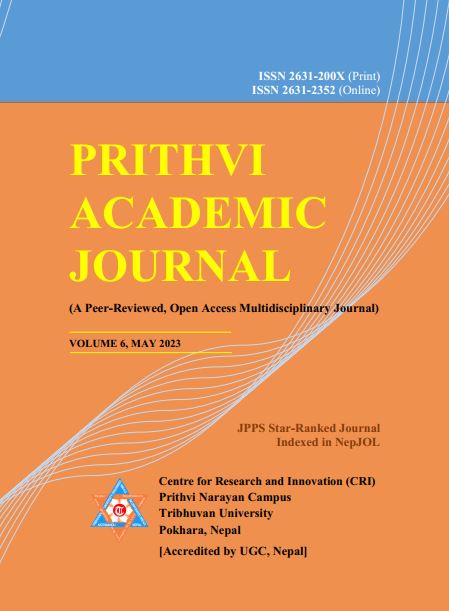Preserving and Promoting Indigenous Languages of Ethnic Minorities in Bangladesh: A Strategic Planning Framework
DOI:
https://doi.org/10.3126/paj.v6i1.54665Keywords:
Indigenous languages, indigenous knowledge, multi-ethnic communities, linguistic and cultural diversityAbstract
Bangladesh is a country with multi-ethnic communities. The majority of the population is Bengali-speaking Bengalese. Around fifty indigenous communities are the rest of the population who have other indigenous languages. Because of the narrow scope, any languages in such conditions have a chance of extinction. For a vibrant and harmonious multi-ethnic society, linguistic and cultural diversities require respect and recognition. Besides, these languages possess epistemic values and are considered sources of primitive knowledge. The government of the People’s Republic of Bangladesh has taken an affirmative initiative to preserve indigenous language and culture. To meet this goal, preservation and promotion of indigenous languages is imperative. By Article 23(A) of its constitution, its education policy of 2010 and its law ‘Small Ethnic Groups Cultural Institutes Act of 2010’ indigenous language rights are restored. Following the government decision, the National Curriculum and Textbook Board publishes primary school textbooks in five indigenous languages. But these are not enough to keep all the indigenous languages alive. Many more actions are necessary to facilitate the constitutional declaration of indigenous language development like publishing textbooks in more indigenous languages, indigenous language teachers’ training and other initiatives. This paper attempts to fill the gap between initiatives taken by the government and the actual necessity of full-fledged affirmative action as it is necessary as the source of the indigenous knowledge. It primarily depends on the literature, official documents and interviews of the respected stakeholders. The outcome of this study is important for the national integration of the countries like Bangladesh that possess a multi-ethnic, pluralistic society.
Downloads
Downloads
Published
How to Cite
Issue
Section
License
Copyright (c) 2023 Authors and Centre for Research and Innovation (CRI)

This work is licensed under a Creative Commons Attribution 4.0 International License.




